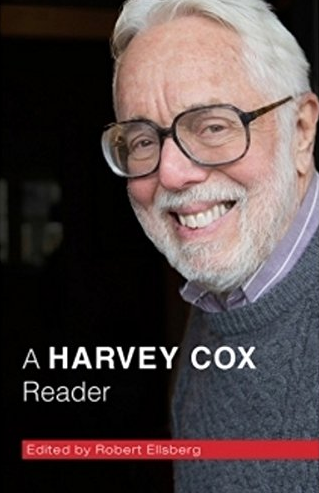A Harvey Cox Reader
This selection of writings from one of the most creative US theologians of the last 50 years is a must read
 Harvey A Harvey Cox Reader
Harvey A Harvey Cox Reader
Robert Ellsberg (ed)
Orbis Books
ISBN 978-1-62698-170-6
Reviewer: Alec Gilmore
Readers of Cox’s The Secular City, which sold over a million copies, was translated into a dozen languages and judged ‘the best selling paperback in any field for the decade of the 1960s’, will rush to buy this. Those who are too young to appreciate the theological excitement of the 60s will benefit from this extremely popular book, which is an update on his current understanding of ‘the secular city’ based on his life experiences plus a collection of his writing in the intervening years. It raises issues as relevant today as they were then and in some cases more so.
For Cox, God is first Lord of History and only then Head of the Church, every bit as ‘present in the secular as in the religious realms of life’. Back in the 60s when the death of God boys were obsessed with traditional theism, Cox (an ordained Baptist minister) was talking about Someone Else, ‘the mysterious and elusive Other of the prophets and Jesus’. He still is (pp 31-2). With a post-modern theology coming ‘not from the centre but from the bottom and from the edge (p 151) he urges us to learn how to ‘speak in a secular fashion about God’, maybe copying the Jews by refusing to mention his name. (p 56).
If you have lost touch with (or never quite grasped) what Bonhoeffer meant by ‘religionless Christianity’ or found Tillich (The Courage to Be) a bit elusive Chapter 22 is a chance to explore different ways of thinking — not theory, bright ideas or how to do it, but essentially practical and down-to earth thinking, as chapter after chapter illustrates the possibilities and reads like a novel.
On a day when you feel down Cox’s approach to Lamentations could be a religious experience. (p 366). If you wonder what he means by ‘the Baptist Motif’ start at chapter 21 with Roger Williams and Martin Luther King. Reflect on the difference between ‘a practicing Christian’ and a believer (p 365), or see how your grasp of the resurrection changes if you move the focus from ‘Jesus’ to ‘God’ (p 310) or pay more attention to ‘life’ than to ‘an empty tomb’ (p 315).
Cox is clear that the test of our ability to handle religion in today’s world depends on our ability to interpret the Christian faith in relation to the modern world view (p 155), which calls for equal attention to ‘the God pole and ‘the world pole’, and Cox knows it not only with his head but his heart as the biographical thread throughout this book adequately testifies.
You may well feel this reads like a travel brochure luring you to a place where you can have everything and too good to be true, but try it. It isn’t perfect. Like everything, it could be improved but then that requires you and me to begin to think as Cox thinks, to see as he sees, and then to add that ‘something’ from our own personality and experience, and that really would be something.
Alec Gilmore is a Baptist minister
Baptist Times, 07/09/2018